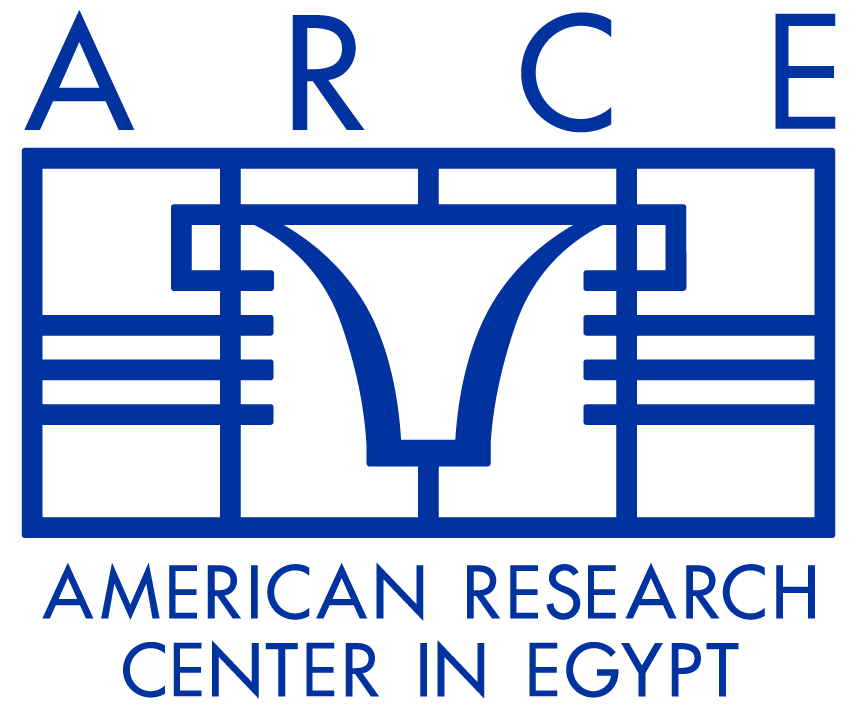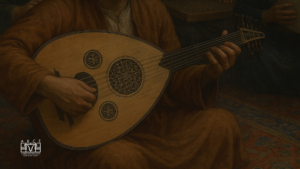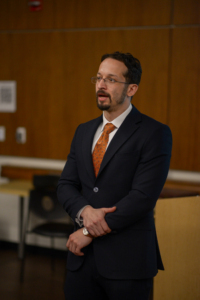
10
SepCairo In-Person Lecture: The Philosopher’s Instrument: The ‘ūdd as a Scientific and Metaphysical Object, from Origins to Conceptual Philosophical Problems on Modelling a Musical Cosmology
Lecture followed by a musical performance
- 6:00 PM Cairo TimeARCE National
- In-PersonARCE Cairo Center 2 Midan Simon Bolivar Garden City Cairo Governorate 11461 Egypt
- + Add to Calendar
Doors Open at 5:30 PM and close at 6:00 PM (or slightly before as the lecture hall reaches full capacity)
Lecture Information

Historically, the lute (‘ūd) was conceptualized by mediaeval authors such as the Ikhwan al-Safa as the ‘perfected instrument of the philosophers’ (Edited and Wright 2011). According to these philosophers/theologians, the instrument represented the realization of a conceptual system that was able to mediate between rational thought (fikr) and the world of experience. In 20th century Egyptian organology the ‘ūd was rediscovered as the principal scientific and cultural artifact, substantiated by: (1) The ‘ūd’s ubiquitous usage as the compositional medium for art music; and, (2) its visual and sonic presence as the primary solo instrument, such as in the virtuosic performance style manifested in the improvisations (ṭaqāsim) of Farid al-Atrash, Muhammed al-Qasabgi, George Michel, etc. (Poché 2001).
This lecture will be an inquiry into the scientific and philosophical importance of the ‘ūd, in its role as an instrument, as well as a metaphysical object. Drawing from the philosophy of phenomenology, philosophy of science, and metaphysics, we can undertake an initial inquiry into the significance of the ‘ūd for Arab-Islamic culture. By looking back at philosophical figures, such as al-Kindī and al-Fārābī, a conceptual understanding emerges of the role of‘ūd as an instrument of measurement, observation, predication, as well as an analogical/ mathematical model of target systems in order to represent scientific theories. To rephrase, it elucidated the explanatory power of a mapping relation between intellectual and sensory modes of perception, in al-Kindī’s case by means of theory-driven models, in al-Farabi’s case by means of phenomenological models.
The methodology developed by such lionized philosophers was revived in the 20th century musical renaissance, through the development of modern scientific culture. Wherein, the scientific basis formulated upon the ‘ūd, as an index of the philosophical culture of the past, re-evangelized the revival of profound questions, with respect to the nature of musical objects qua the ontological status of modes, mathematical symmetry, etc. In the second half of this lecture, I will be sharing my insights by (1) reporting phenomenological data, from my event-centered study of ‘ūd performance, as well as (2) looking at the theoretical structures of the modal system (maqām) that determine the academic and popular performance of Arab music citing changes in academic practice since the 20th century. The outcome of the lectures should help attendees gain a deeper understanding of the academic philosophy of Arabic Classical Music – through phenomenological and analytical methods.
The lecture will be followed by a performance.
Speaker Bio
 Hani Zewail specializes in Mediaeval and Contemporary music in the Islamic World, especially on the emphasis of Egypt, Syria, and Historical Iraq. His research interests include Ancient Greek-Mediaeval philosophy of music, Arab Classical Music, phenomenology, and temporality. His Master’s Thesis at UCSB is titled: The Musical language of Body-Soul relations in 9th-10th century Islamic philosophical discourse. Under the tutelage of Dr. Dwight Reynolds, Zewail has analyzed, translated, and created commentaries on Mediaeval Arab works that put him at the center of a fascinating, complex dialectic that began in Ancient Greece and found resonance with thinkers such as Al-Kindī and the Ikhwan al-Safa.
Hani Zewail specializes in Mediaeval and Contemporary music in the Islamic World, especially on the emphasis of Egypt, Syria, and Historical Iraq. His research interests include Ancient Greek-Mediaeval philosophy of music, Arab Classical Music, phenomenology, and temporality. His Master’s Thesis at UCSB is titled: The Musical language of Body-Soul relations in 9th-10th century Islamic philosophical discourse. Under the tutelage of Dr. Dwight Reynolds, Zewail has analyzed, translated, and created commentaries on Mediaeval Arab works that put him at the center of a fascinating, complex dialectic that began in Ancient Greece and found resonance with thinkers such as Al-Kindī and the Ikhwan al-Safa.
His previous work at UC Berkeley was a thesis in Interdisciplinary Studies on fractals or 1/f noise in Arab music, that engaged Zewail in the search for cognitive musical phenomena that were self-similar to physical phenomena found in Islamic geometric and cultural arts. Zewail’s dissertation research will be focused on aspects of temporality in Arab Music with a focus on aesthetics. Consonant with Zewail’s other projects is the focus on interdisciplinary research methodologies. In this project, he hopes to incorporate phenomenology, philosophy of time, and performance theory in a modern context with specific musical cultures and experience in mind such as the eternality of tarab (modal ecstasy) in Egyptian culture.
Zewail is an avid believer in performing his own cultural heritage and has ingrained himself in the Arab tradition studying ‘ud for over 7+ years with performers such as Palestinian ‘ūd master Naser Musa Jannini and accomplished modal theorist Dr. Scott Marcus.